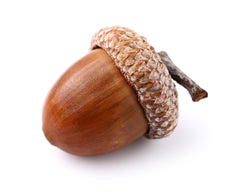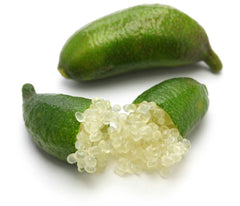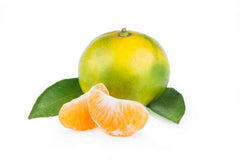What Does Daisy Smell Like?
Click For Affordable Inspired Perfume Alternatives

Embark on a fragrant journey to the meadows and discover the enchanting aroma of daisies. These delicate and cheerful flowers, with their iconic white petals and golden centers, boast a distinctive fragrance that captures the essence of blooming fields. Join us as we explore the question: What does daisy smell like?
What Does Daisy Smell Like?
The fragrance of daisies is a delicate and whimsical dance of floral notes with a touch of green freshness. Picture the subtle sweetness of petals intertwined with a hint of earthiness. Daisy's scent is a celebration of the floral family, offering a light and uplifting olfactory experience.
Daisy's Floral Elegance
Enter the enchanting world of daisies, where the fragrance is an elegant celebration of florals. Join me on a fragrant journey to discover the captivating aroma that defines the essence of daisies.
Floral Harmony: A Meadow Bouquet
As you approach daisies, the first olfactory impression is a gentle breeze of floral harmony, reminiscent of a meadow in full bloom. Picture the softness of jasmine and the freshness of lilies seamlessly combined. Daisy's fragrance is a celebration of floral elegance, instantly transporting you to a sunlit meadow with its light and invigorating character.
Subtle Sweetness: Petal Whispers
The scent of daisies is a subtle whisper of sweetness. It captures the delicate and ethereal essence of flowers, akin to a gentle breeze carrying the fragrance of petals. The aroma is a testament to the sweet and tender nature of daisies, creating a refreshing and delightful olfactory experience that echoes the charm of blooming meadows.
Green Crispness: Meadow Freshness
While predominantly floral, there's a subtle undercurrent of green crispness in daisy's scent. This touch of greenery adds a breath of fresh air to the fragrance, creating a well-balanced composition that is both uplifting and subtly crisp. Daisy's aroma is a delightful interplay of floral sweetness and meadow freshness, reminiscent of a serene stroll through a field of blossoms.
Airy Lightness: Essence of Petal Softness
Delve deeper into the scent, and you may notice an airy lightness that characterizes daisy's fragrance. It's as if the aroma carries the essence of softly brushed petals, creating a gentle and uplifting olfactory experience.
Daisy's Floral Symphony
Hence, daisy's fragrance is a floral symphony of elegance, sweetness, green crispness, and airy lightness. It stands as a testament to the delicate and charming qualities of these blossoms, offering a sensory experience that is both refreshing and delightful. Daisy, with its light and uplifting aroma, invites us to savor the floral notes found within its petals, a fragrant journey that unfolds with every delightful whiff.
Factors Influencing the Scent of Daisy Fragrance Oil
Daisy fragrance oil is a carefully crafted composition designed to capture the delicate and floral aroma of daisies. The formulation of this fragrance involves a thoughtful combination of aromatic compounds. Here are several factors that contribute to the light and uplifting scent of Daisy fragrance oil:
Fragrance Composition: Daisy fragrance oil is a meticulously blended mixture of various aromatic compounds, chosen to replicate the characteristic scent of daisies. This composition may include both synthetic and natural ingredients to achieve the desired olfactory profile.
Floral Essence: At the heart of the fragrance lies the essence of daisies. Notes of soft florals, with a perfect balance of sweetness and freshness, are intricately blended to mirror the light and invigorating aroma of daisies.
Synthetic vs. Natural Components: Daisy fragrance oil often combines both synthetic and natural ingredients. Perfumers make choices to strike a balance between authenticity, cost considerations, and sustainability in the selection of these components.
Extraction Method: The method used to create Daisy fragrance oil, whether through distillation or extraction, plays a crucial role in defining the aromatic profile. Specific extraction methods contribute to the faithful recreation of the fresh and floral scent.
Additional Floral and Green Notes in the Blend: The fragrance may incorporate additional floral elements or subtle green notes to enhance complexity. These complementary notes contribute to the overall lightness and freshness of the scent, capturing the essence of daisies.
Quality of Ingredients: The quality of raw materials, including the source of essential components, directly influences the freshness and authenticity of the daisy scent in the fragrance oil.
Perfumer's Artistry: The expertise and creativity of the perfumer or fragrance creator are crucial. Perfumers leverage their skills to balance different components, creating a distinctive and delightful daisy fragrance.
Regulatory Compliance: Adherence to regulatory standards and restrictions on certain fragrance ingredients is crucial. Compliance with safety guidelines requires careful consideration of ingredient choices to ensure the fragrance is safe for use.
Usage in Products: Daisy fragrance oil can be incorporated into various products, including perfumes, candles, room sprays, and bath products. The interaction with other ingredients in specific product formulations can influence how the daisy scent is perceived.
Product Type and Concentration: The concentration of Daisy fragrance oil in a product affects the strength and longevity of the scent. Higher concentrations may be suitable for perfumes, while lower concentrations work well for candles, soaps, or room sprays.
Storage Conditions: Proper storage conditions for Daisy fragrance oil, both before and after formulation, are essential to maintain its stability and scent. Storing it in a cool, dark environment helps preserve the freshness of the fragrance.
Consumer Preferences and Trends: Formulations of Daisy fragrance may adapt to changing consumer preferences and market trends. The popularity of light and floral scents or unique blends may influence product formulations.
Artisanal vs. Commercial Production: Differences between artisanal and commercial production of Daisy fragrance oil may impact ingredient sourcing, formulation, and overall quality. Artisanal methods may emphasize craftsmanship and unique blends.
Post-Formulation Processing: Additional processes, such as aging or filtering after the formulation of the fragrance oil, may influence the final scent and contribute to the desired characteristics.
Exploring different formulations of Daisy fragrance oil allows consumers to experience a range of light and floral scents reminiscent of the charming daisy flower. Individual preferences play a significant role in selecting the perfect Daisy fragrance for various applications.
What to Look for When Choosing Daisy Fragrance Oil
Selecting a daisy fragrance oil allows you to enjoy the delicate and uplifting aroma of daisies, capturing the essence of blooming meadows. Whether used in candles, diffusers, or personal care products, consider these factors to ensure you choose a high-quality and authentic daisy fragrance oil:
Floral Authenticity: Seek a daisy fragrance oil that authentically captures the fresh, floral, and uplifting scent of real daisies. Look for a fragrance that embodies the unique floral notes characteristic of quality daisies.
Natural vs. Synthetic: Determine whether the fragrance oil is derived from natural sources or is synthetically produced. Natural daisy oils can provide a more nuanced and realistic scent, closely resembling the aroma of actual daisies.
Blend Ingredients: Check the blend of ingredients in the fragrance oil. A well-crafted combination of natural and synthetic components can contribute to a balanced and long-lasting daisy fragrance.
Intensity Level: Consider the intensity level of the daisy fragrance. Some may prefer a subtle and refreshing scent, while others may desire a more pronounced and uplifting aroma. Look for a fragrance that aligns with your desired level of intensity.
Versatility: Choose a fragrance oil that is versatile and suitable for various applications. Whether used in candles, soaps, lotions, or diffusers, versatility allows you to enjoy the floral scent in different settings.
Packaging: Assess the packaging of the fragrance oil. Opt for a bottle that is dark or opaque to protect the oil from light exposure, preserving its freshness and preventing deterioration over time.
No Residue or Discoloration: Ensure that the daisy fragrance oil leaves no residue or discoloration when incorporated into different products. A high-quality oil should seamlessly integrate into various mediums without causing unwanted effects.
Manufacturer Reputation: Research the reputation of the manufacturer or brand. Choose well-established brands with positive reviews, as they are more likely to produce reliable and high-quality fragrance oils.
Testing Options: Look for fragrance oils that offer testing options or sample sizes. This allows you to experience the scent firsthand before committing to a larger quantity, ensuring it aligns with your preferences.
Ethical and Sustainable Practices: Consider the manufacturer's commitment to ethical and sustainable practices. Brands that prioritize responsible sourcing and environmentally friendly production contribute to a more conscientious choice.
By considering these factors, you'll be better equipped to choose a daisy fragrance oil that not only aligns with your preferences but also ensures a high-quality and uplifting olfactory experience in your chosen applications.
Where to Find Reputable Daisy Fragrance Oils
Specialty Candle and Soap Supply Stores: Explore specialty stores dedicated to candle-making and soap supplies, as they often carry a variety of fragrance oils, including unique scents like daisy. These stores may offer options suitable for crafting candles, soaps, and other scented products.
Online Fragrance Oil Retailers: Browse reputable online platforms specializing in fragrance oils. Websites and retailers dedicated to aromatherapy, candle making, or DIY crafting may have an extensive selection of daisy fragrance oils. Check product descriptions and customer reviews for authenticity and quality.
Artisanal or Handmade Markets: Attend artisanal markets or craft fairs where independent sellers showcase handmade products. Artisan vendors may create unique and carefully crafted daisy fragrance oils, providing an opportunity to explore distinct options.
Local Essential Oil or Perfume Shops: Specialty shops focusing on essential oils or perfumes may carry daisy fragrance oils. These stores often prioritize high-quality scents and may offer a range of unique and floral aromas.
Online Marketplaces: Platforms like Etsy or other online marketplaces featuring handmade or artisanal products can be sources for daisy fragrance oils. Look for sellers with positive reviews and detailed information about their products.
Aromatherapy Stores: Aromatherapy stores often carry a variety of fragrance oils for different applications. Inquire about the availability of daisy scents to add a floral and uplifting aroma to your living space.
Local Farmers' Markets or Herbal Shops: Check with local farmers' markets or herbal shops that specialize in natural products. Some of these establishments may offer fragrance oils with botanical scents, including daisies.
Specialty Perfume Retailers: Explore specialty perfume shops that focus on unique and exotic fragrances. These stores may carry daisy fragrance oils known for their delicate and floral notes.
Word of Mouth: Seek recommendations from friends, family, or members of fragrance communities for trusted sources of daisy fragrance oils. Personal experiences and suggestions can guide you to reputable suppliers known for quality and authenticity.
Check Ingredients and Descriptions: Before making a purchase, carefully read product descriptions and check ingredient lists for daisy fragrance oils. Authentic and reputable sellers provide clear information about the composition and intended use of their products.
Note: Daisy fragrance oils can bring a floral and uplifting note to your DIY projects. Ensure that the fragrance oil you choose aligns with your intended use, whether it's for candles, soaps, diffusers, or other creative endeavors. Follow safety guidelines provided by the manufacturer for proper usage.
20 Questions and Answers about Daisy:
Q1: What is Daisy in perfumery? A1: Daisy in perfumery refers to the aromatic essence extracted from the flowers of the Daisy plant, commonly used as a fragrance note in perfumes.
Q2: How is Daisy fragrance extracted? A2: Daisy fragrance is typically extracted through steam distillation or solvent extraction methods, capturing the essential oils from the flowers.
Q3: What does Daisy smell like in perfumery? A3: Daisy fragrance in perfumery is often described as fresh, floral, and slightly sweet with a hint of greenness, resembling the natural scent of Daisy flowers.
Q4: Is Daisy a common fragrance note in perfumes? A4: Yes, Daisy is a popular and common fragrance note in perfumery, known for its light and uplifting aroma.
Q5: What other notes complement Daisy in perfumes? A5: Daisy is often paired with notes like jasmine, rose, violet, and green notes to enhance its floral and fresh characteristics.
Q6: Are there different varieties of Daisy used in perfumery? A6: Yes, various species of Daisy may be used in perfumery, each contributing slightly different nuances to the fragrance.
Q7: Is Daisy used in both men's and women's perfumes? A7: Yes, Daisy is a versatile fragrance note used in both men's and women's perfumes, contributing to a range of floral and green scents.
Q8: Can Daisy be a dominant note in a perfume? A8: While Daisy is often used as a supporting note, some perfumes feature it as a dominant note, particularly in fresh and light fragrances.
Q9: Does Daisy fragrance have any therapeutic properties? A9: Daisy fragrance is believed by some to have calming and mood-lifting properties, contributing to its use in aromatherapy.
Q10: Can Daisy fragrance be synthetic? A10: Yes, synthetic Daisy fragrance compounds are also used in perfumery, providing a consistent and cost-effective alternative to natural extracts.
Q11: Is Daisy associated with any specific fragrance family? A11: Daisy is commonly associated with the floral and green fragrance families in perfumery.
Q12: Are there any famous perfumes featuring Daisy notes? A12: "Marc Jacobs Daisy" is a well-known perfume that prominently features Daisy notes, becoming an iconic fragrance in the perfume industry.
Q13: Can Daisy fragrance be overpowering? A13: Daisy fragrance is generally light and subtle, but its intensity can vary depending on the concentration and other notes in a perfume.
Q14: Are there any cultural or historical significances of Daisy in perfumery? A14: Daisies have symbolized purity and innocence in various cultures, influencing their use in perfumery to evoke a sense of freshness and simplicity.
Q15: Can Daisy be combined with spicy notes in perfumery? A15: While Daisy is more commonly paired with floral and green notes, it can be blended with subtle spicy notes for a unique and complex fragrance.
Q16: Does Daisy fragrance evolve over time in a perfume? A16: Yes, Daisy notes, like many other fragrance components, can evolve over time, revealing different facets as the perfume dries down on the skin.
Q17: Can Daisy be found in natural perfumes? A17: Yes, many natural and organic perfumes use Daisy as a key floral note, catering to those who prefer botanical and eco-friendly fragrance options.
Q18: Can Daisy fragrance be used in scented candles? A18: Yes, Daisy fragrance is often incorporated into scented candles, adding a floral and refreshing element to the ambiance.
Q19: How should one store perfumes containing Daisy notes? A19: To preserve the integrity of Daisy notes, perfumes should be stored in a cool, dark place away from direct sunlight and extreme temperatures.
Q20: Are there any potential allergic reactions to Daisy in perfumes? A20: Some individuals may be sensitive or allergic to certain fragrance components, including Daisy. It's advisable to perform a patch test before using a new perfume extensively.
Buy Perfumes - Best Online Retailers
Click For Affordable Inspired Perfume Alternatives
Click For The Best Niche Perfumes & Decants
Pheromone Perfumes - Confidence, Attraction & Appeal - Click For More
Home Fragrances & Candle Warmers - Click To Scent Up Your Spaces Today!



